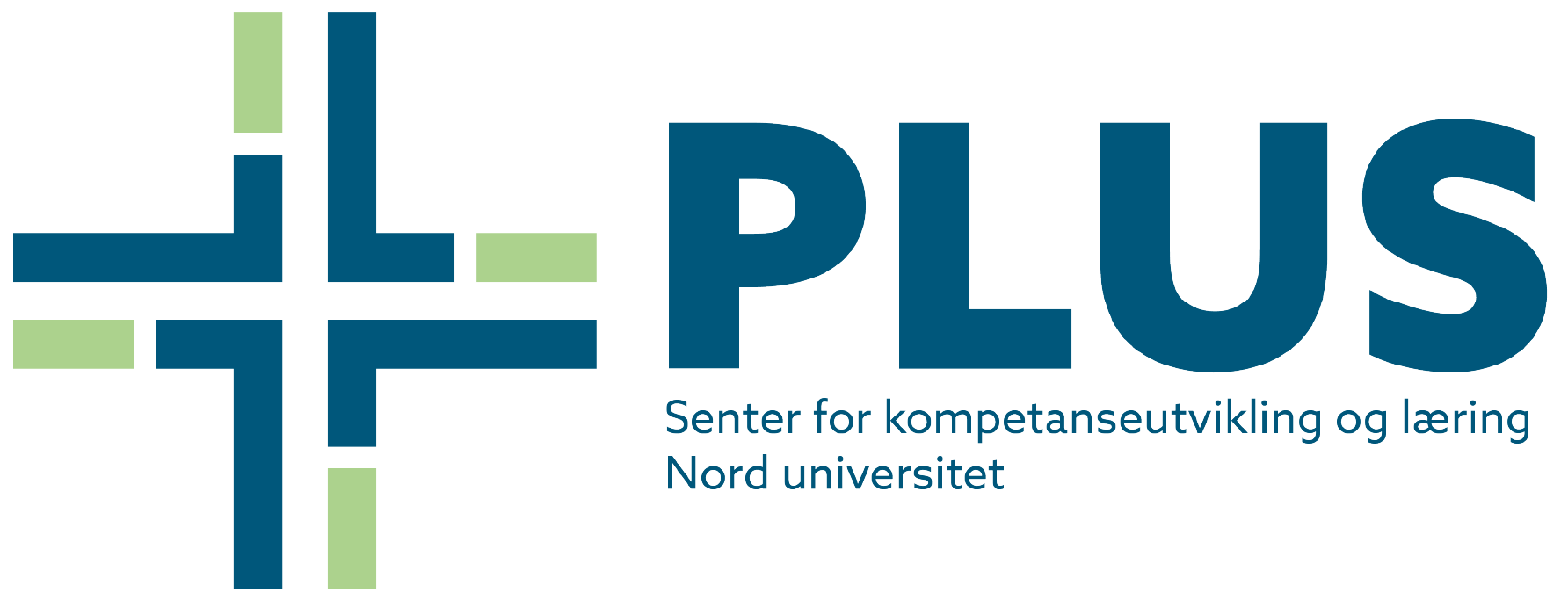By Gunhild von Porat Erichsen and Anna CohenMiller, 28 May 2025
Teaching Forum 2025 took place on 24 April as a hybrid event with a workshop in the Bodø camps of Nord University and digital participation via Zoom. The forum, organized by PLUS – Centre for Competence Development and Learning, brought together teachers, researchers and leaders with one common goal: to share experiences, inspire each other and develop teaching practices together.
A warm opening and encouragement to participate
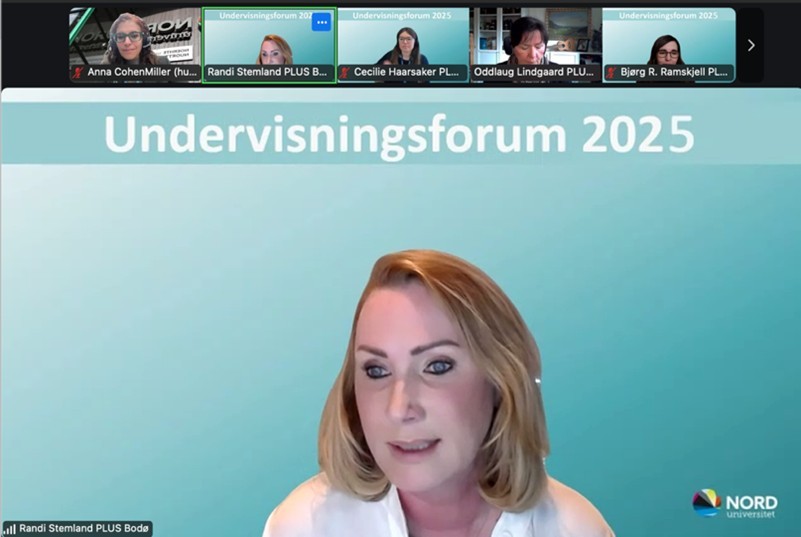
Randi Stemland, the leader of PLUS, opened this year’s forum with a clear reminder of why this forum exists: to strengthen the community among teachers and contribute to a vibrant teaching culture. Although the physical attendance was lower than desired, she hopes future forums will facilitate relationship building to a greater extent – not just digitally, but face-to-face. Stemland encouraged the participants to contribute actively, ask questions and be inspired throughout the day.
After the opening, today’s moderator, Cecilie Haarsaker, took over and welcomed the participants. She gave a brief introduction to the practicalities of the day, including who was technically responsible before and after lunch, and how participants could ask questions of the speakers along the way. With this, she facilitated a smooth implementation of the program and wished everyone an inspiring day.
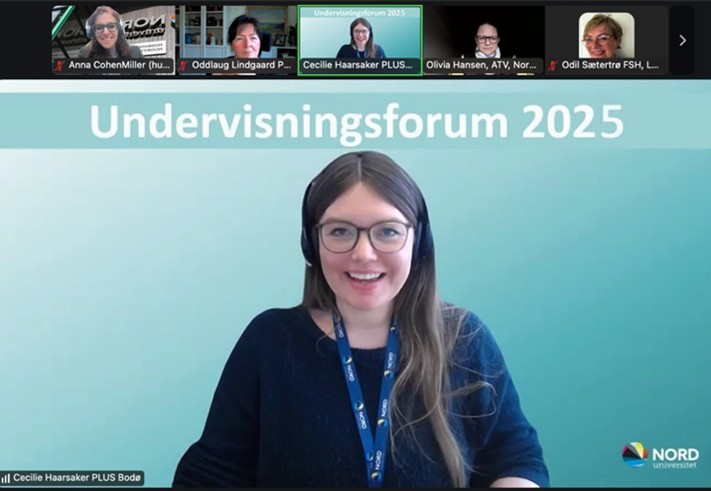
SMART design and lifelong play
The first academic presentation came from PLUS by Oddlaug Lindgaard, who presented a conversation model for the design and redesign of teaching – SMART. The model emphasized structure, mastery, activity, relationships and transformation as key factors for learning and formation. Lindgaard also highlighted the importance of understanding how the brain works. She encouraged teachers to think holistically and in harmony in their planning, with clear learning objectives, relevant forms of assessment and teaching that is based on both academic and pedagogical research. Lindgaard concluded with a clear message: Teaching is a collective responsibility – we must work together to ensure quality.
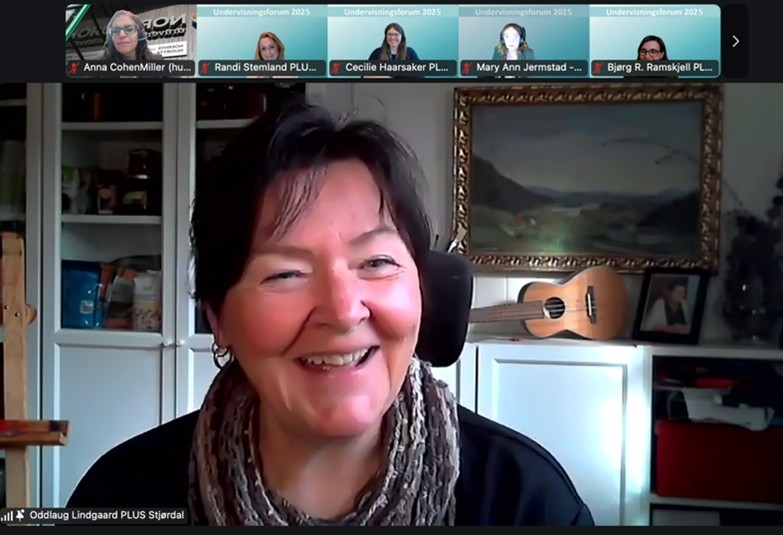
Then Olivia Hansen took us into the world of play. With her background in special education and social education, she highlighted how play can be an entrance to learning, mastery and personal development – not only for children, but for all ages. Her mastery model emphasized security, relationships and joint projects. She also challenged the current education system, with its strong emphasis on control and goals, and highlighted the importance of preserving space for the unforeseen, the improvised and the playful in teaching.
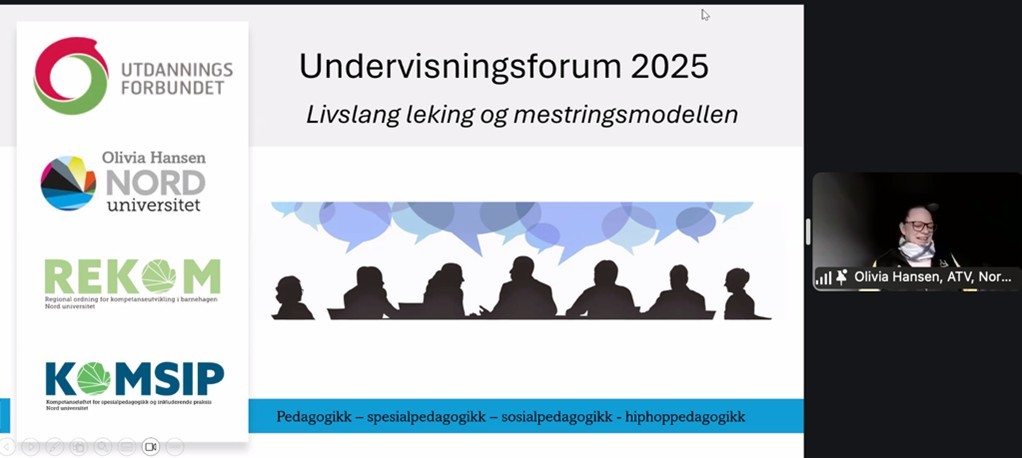
Cross-disciplinary teaching and aesthetic language trips
Lars Berton Forr-Garnvik presented a concrete measure to streamline the teaching of anatomy, physiology, biochemistry and microbiology (AFBM) – the course. By coordinating parallel teaching courses on several campuses (Bodø, Levanger, Mo i Rana, Namsos) with digital introductions and local follow-up, duplication of work is reduced and it is ensured that all students have access to the same academic content. The new model is based on the principle of «one common entrance – local anchoring», and is a good example of how to combine quality and efficiency in practice.
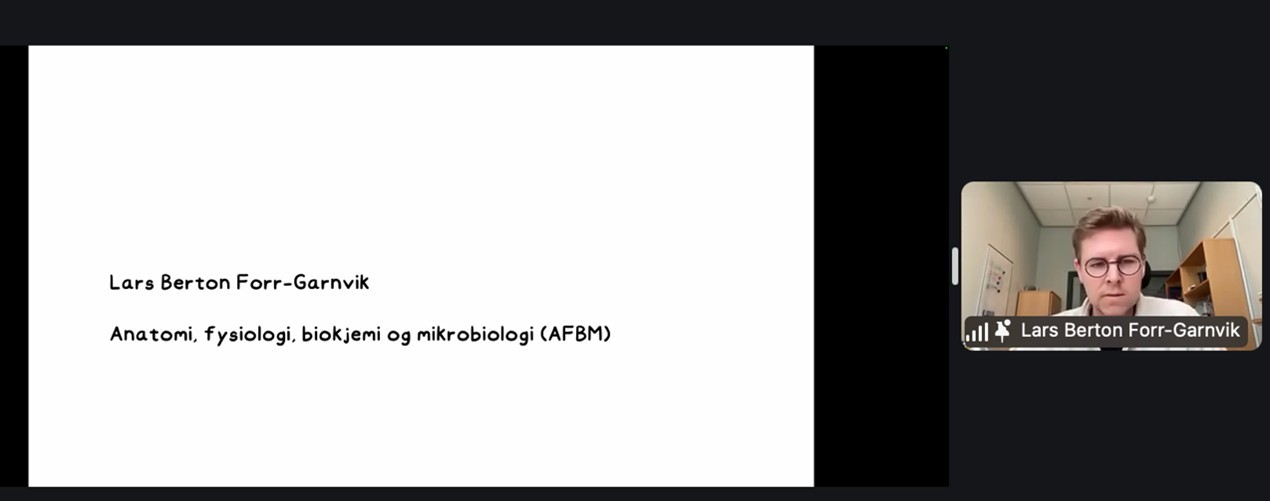
In a completely different, but equally important track, Nayr Ibrahim, FLU, Rebeca Marin Barbero and Aleksandra Kalinowska, teachers at Bankgata school, as well as Vikki Helle Augestad, teacher student, shared experiences from an aesthetic project with students at Bankgata school. By creating Dominant Language Constellations (DLC artifacts), students were able to explore and express their multilingual identity in creative and visual ways. The project challenged traditional attitudes to language in school and provided space for conversation, reflection and community. The DLCs – everything from birds to bananas – symbolized language as resources and identity markers. The DLC artifacts will be exhibited at the library in Bodø and several participants want to use the experiences in further research and development work.
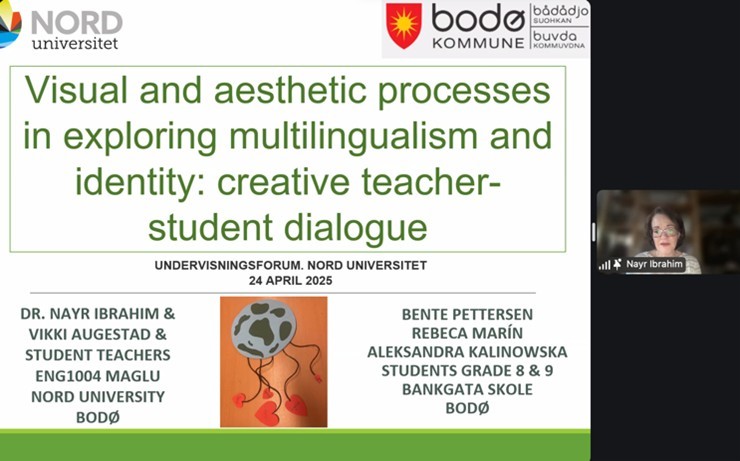
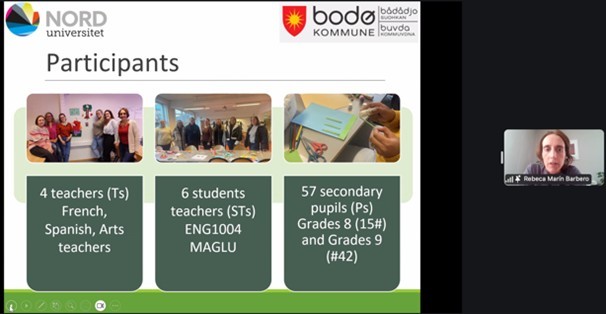
Sustainability, fractions and burning commitment
Kristina Sophi Jenssen and Iselin Kristine Mauseth Steira from Engage presented how interdisciplinary collaboration and entrepreneurial methods are used to create sustainability-oriented learning arenas. Based on study programmes such as «FIVER», «Teamwork in Practice» and «Sustainable Practice», they show how students develop real solutions in collaboration with business and the public sector – and at the same time acquire important skills such as creativity, collaboration and reflection.

Marthe Måløy gave a vivid insight into how fractional teaching can be made engaging and meaningful with the help of the «Engaged Learning» framework. With Act – Embrace – Interact – Challenge – Reflect as a methodological starting point, the teacher students developed teaching in collaboration with students in the 5th grade. The results were good: The pupils understood fractions better than older pupils, thanks to realistic and exploratory tasks.
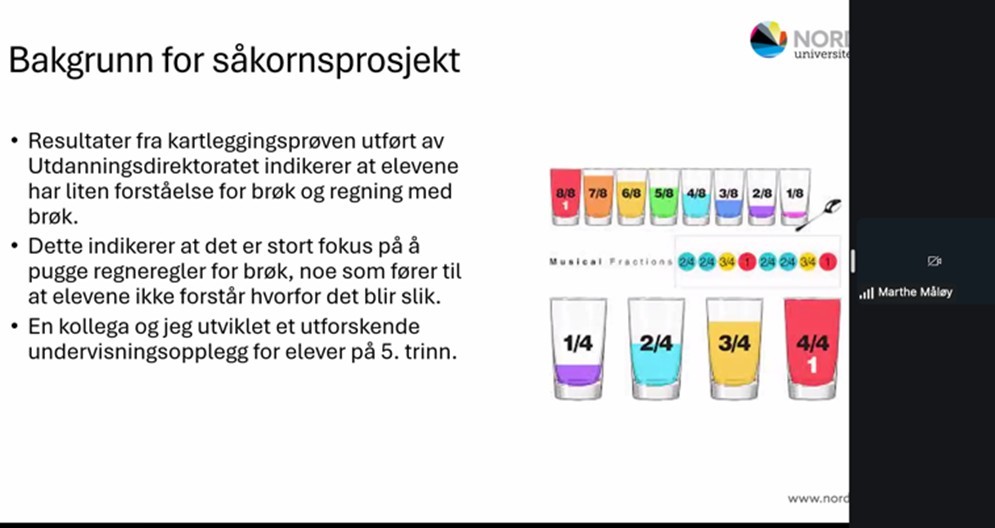
Peer supervision and process thinking in higher education
Gunhild von Porat Erichsen highlighted how peer-guided action learning can be a driving force for teaching development in higher education. Based on experiences from the UniPed course and theory from Boyer, Schön and Mezirow, among others, she argued that reflection on action and communities of practice are crucial for change.
By combining individual exploration with collective dialogue, action learning provides a framework for systematic improvement. At the same time, Erichsen acknowledged that change can meet resistance – and that it requires institutional support and a culture of trust to succeed.
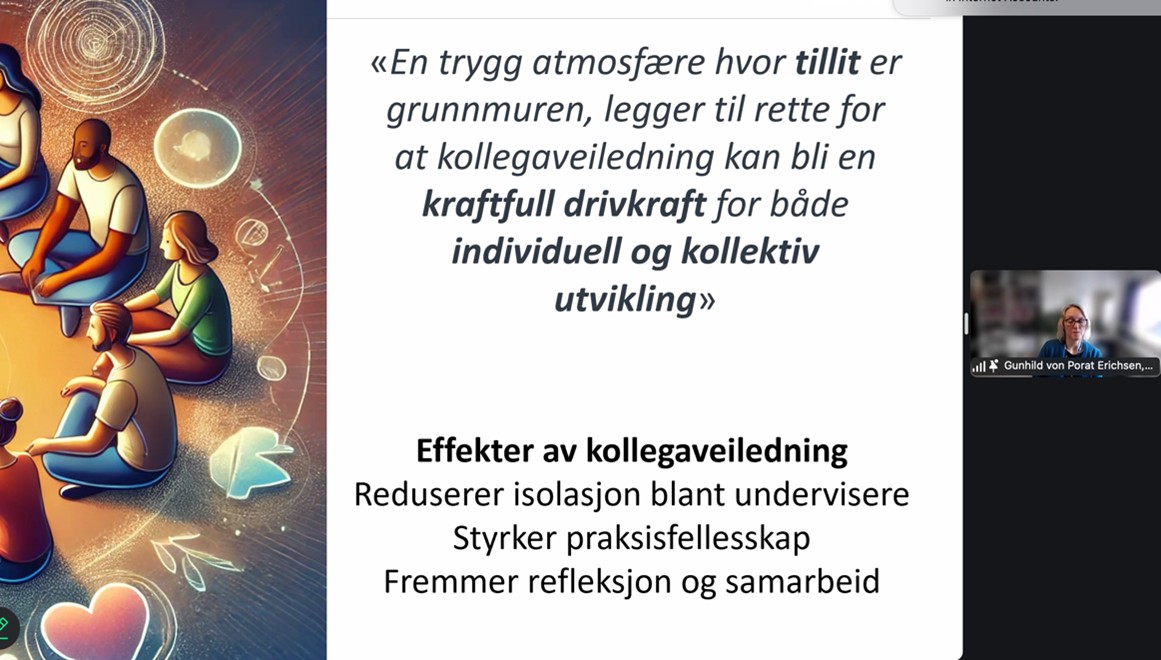
Iselin K. M. Steira and Sølvi Solvoll rounded off the day with a look at research that follows processes, not just results. Through a systematic literature review of entrepreneurship education, they showed how process studies can provide insight into how learning actually happens – over time. With questions about methodological approaches and research opportunities in their own practice, they inspired further investigation and reflection.
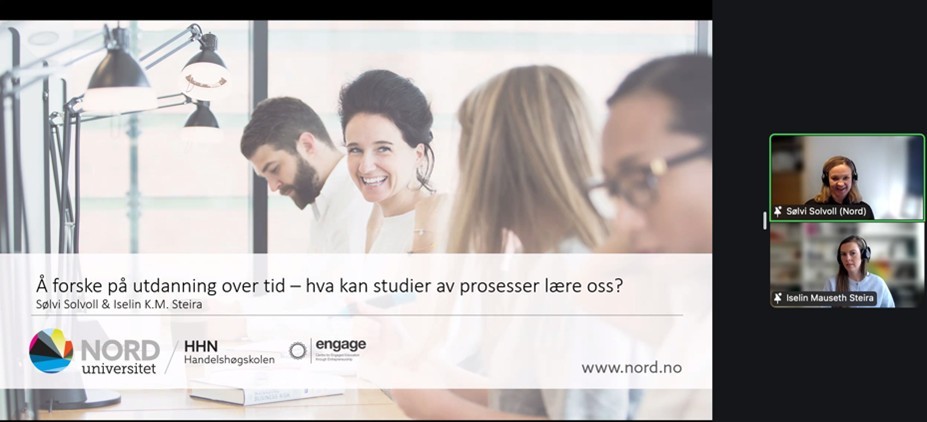
Workshop: Researching your teaching praxis – action research and playful approaches
The day ended with an engaging and practically oriented workshop led by Professor Anna CohenMiller at PLUS. Here, the participants explored what it means to conduct research on one’s own teaching practice, with particular emphasis on participatory action research as a methodological approach.
Through examples and discussion, the participants reflected on how action research can provide insight into practice, challenge established truths and open up for development. Ideas for various current issues and research projects were also discussed, after which the topic of «playfulness» emerged; A discussion about how play and creativity can be a tool for the development of good learning environments, student engagement and innovation in teaching development.
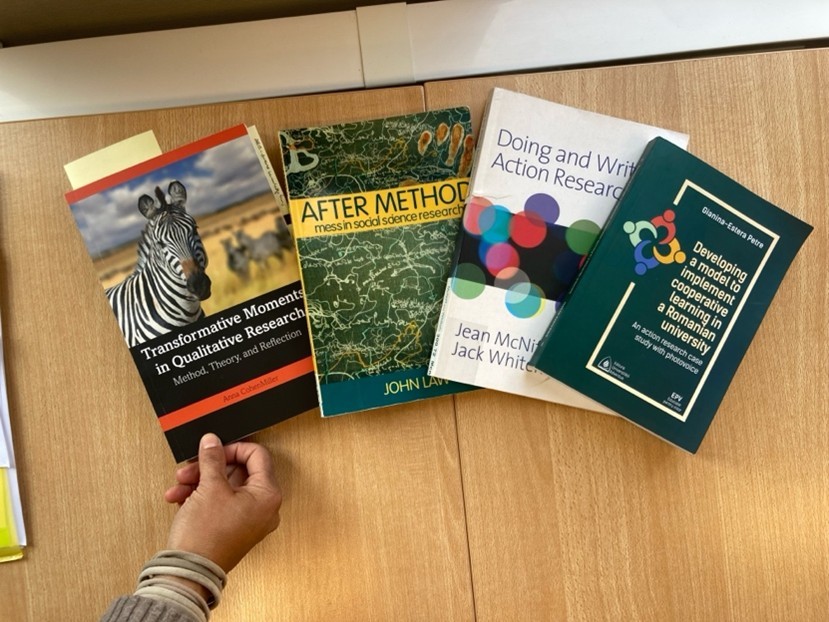
The Teaching Forum 2025 highlighted the power of sharing experiences, exploring new methods, and reflecting critically on our own teaching practices. A clear message throughout the day was that pedagogy is strengthened when we take the time to research and develop our own practice, and even small steps can lead to meaningful change. We encourage faculty to begin thinking now about their own projects, experiments, and reflections that could be shared next April 2026. Whether you are considering action research, innovative teaching methods, or new collaborative approaches, we are here to support you.
Feel free to reach out to during the year if you would like to discuss ideas or prepare research contributions – together, we build a stronger teaching and learning community!
